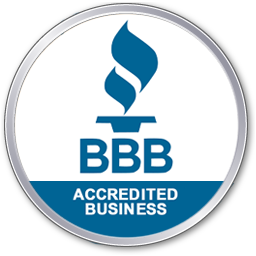Pages
- About
- Asbestos Abatement in Vancouver, WA
- Asbestos Services in Portland, Oregon
- Asbestos Testing (A)
- Asbestos Testing (B)
- Asbestos Testing (C)
- Asbestos Testing (D)
- Asbestos Testing in Vancouver, WA
- Blog
- Careers
- Commercial Fencing
- Contact Us
- Continuing Education Courses & Credit in Portland, OR
- Digging & Excavation Services
- Drywall Installation & Repair
- Environmental Site Assessments (ESA) in Tennessee
- Events & Classes
- Fire & Smoke Damage
- Hazardous Waste Disposal in Portland, Oregon
- HTML SITEMAP
- Hydraulic Lift Removal in Portland, OR
- Indoor Air Quality Screening in Portland, Oregon
- Junk Removal Services in Portland, Oregon
- Land Clearing
- Landing Page 1
- Landing Page 2
- Lead Testing in Portland, Oregon
- Licensing & Insurance
- Mold Inspection & Testing
- Mold Removal & Remediation
- Mold Services in Portland, Oregon
- Now Serving Salem, OR
- Phase 1 Environmental Site Assessments (ESA) in Portland, Oregon
- Phase 2 Environmental Site Assessment (ESA) in Portland, Oregon
- Phillip R. Brewer
- Privacy Policy
- RADON SERVICES IN PORTLAND, OREGON
- Regulatory Requirements
- Representative Projects
- Residential Fencing
- Resources
- Reviews
- Roof Life of Oregon
- Services
- Sewage Cleanup
- Sewer Scope Inspection Guidelines
- Sewer Services in Portland, Oregon
- Storm & Wind Damage
- Stormwater Management
- Team
- Underground Storage Tank Services in Portland, OR
- Water Damage
- Well Water And Flow Rate Testing
- Wood Stove Removal Services in Portland, OR
- Your Portland Environmental Consulting Company
- Zachary Goodman – Salem Branch Manager
Posts
- 4 Types of Mold to Look Out For
- 5 Different Types of Septic Tanks
- 5 Quick and Dirty Tips for Sewer Inspection & Upkeep
- 5 Things to Know About Owning a Home With a Well
- A Guide to Moisture and Mold Removal in Portland
- A Guide To Residential Dry Wells
- A Guide to Underground Storage Tank Removals and Decommissioning
- A Homeowner’s Guide to Asbestos in Portland Homes
- Air Pollution In The Office – What You Need To Know
- Air Quality Screening: DIY vs Professional Air Quality Screen
- All About Septic Tank Additives
- Asbestos in Floor Tiles: What You Need to Know
- Asbestos In Older Homes
- Benefits of Bioremediation for Cleanup Sites
- Bioswales and Rain Gardens: Sustainable Solutions for Positive Drainage
- Buying or Selling A Home With An Underground Heating Oil Tank
- Can Mold Grow in Cold Temperatures?
- Can You Paint Over Lead Paint?
- Choosing the Right Location for a Dry Well Installation
- Commercial Property Flood Preparedness for Business Owners
- Commercial Radon Mitigation: Safeguarding Your Business and Employees
- Commercial Real Estate and Environmental Site Assessments
- Commercial Water Damage: Long-Term Effects on Businesses
- Common Causes for Clogged Sewer Lines
- Common Causes of Mold Growth in Homes and Businesses
- Common Red Flags Found During Phase I ESAs
- Common Soil Contaminants Found Around Storage Tanks
- DEQ Asbestos Sampling Rules & Regulations
- Difference between DIY Testing Kits and Professional Radon Testing
- Do I Need a Sewer Scope Inspection in My Portland Home?
- Does Home Insurance Cover Asbestos Abatement?
- Does Home Insurance Cover Water Damage?
- Dry Wells vs Septic Tanks for Rural Areas Explained
- Emergency Response to Hazardous Waste Spills
- Fire Damage Insurance Coverage: What Business Owners Should Know
- Fuel Blending Hazardous Waste: Pros & Cons
- Guide To Lead Testing and Abatement
- How Can Brownfields Be Redeveloped?
- How Deep Should a Dry Well Be?
- How Do Sewer Lines Break?
- How Do the Radon Testing and Radon Mitigation Processes Work?
- How Do You Know If An Underground Storage Tank is Leaking
- How Does a Septic Tank Work?
- How Does Oil Tank Decommissioning Work?
- How Does Trenchless Sewer Repair Work?
- How Long Can You Use a Collapsed Septic Tank?
- How Long Does a Sewer Inspection Take?
- How Long Does a Sewer Main Line Cleaning Take?
- How Long Does a Trenchless Sewer Repair Take?
- How Long Does Heating Oil Stay in Soil?
- How Long Does It Take to Repair a Broken Sewer Line?
- How Long Does Mold Remediation Take?
- How Long Does Water Damage Restoration Take?
- How Much Does a Phase 1 Environmental Site Assessment Cost?
- How Much Does a Phase 2 ESA Cost?
- How Much Does a Sewer Scope Inspection Cost?
- How Much Does it Cost to Decommission an Oil Tank?
- How Much Does It Cost To Pump a Septic Tank in 2025?
- How Much Does it Cost to Remove Asbestos?
- How Much Does it Cost to Replace a Septic System?
- How Much Does Mold Remediation Cost?
- How Much Does Trenchless Sewer Repair Cost?
- How Often Should You Clean Your Septic Tank: A Guide
- How Often Should You Pump Your Septic Tank?
- How Soil Sampling Works: a Step-by-Step Guide
- How to Choose the Right Restoration Company after a Flooding
- How to Combat Mold Growth During High-Humidity Months
- How to Determine If Your Lot Needs Clearing Before Starting Construction
- How to Determine If Your Well’s Water Flow Rate Meets Your Household’s Needs
- How to Find the Septic Tank on Your Property
- How To Fix A Flooded Backyard in Portland, OR
- How To Help A Client When Their Home Inspection Results Are Negative
- How to Identify Mold in Your Home
- How to Prepare Your Property for Asbestos Abatement
- How To Prevent Bathroom Floods From Getting Worse
- How To Prevent Frozen Walkways In The Winter
- How to Prevent Mold In Your Home This Spring
- How To Prevent Mold In Your Home This Summer
- How to Prevent Mold In Your Home This Winter
- How To Properly Store Household Hazardous Waste
- How to Reduce Radon in Your Home or Business
- How To Safely Check For Asbestos
- How to Tell If a Drain Field Is Failing
- How To Tell If Your Popcorn Ceiling Has Asbestos
- How To Winter-Proof Outdoor Faucets & Water Fixtures
- How Tree Roots Can Damage Sewer and Drain Lines
- How Trenchless Sewer Repair Can Save You Time and Money
- Importance of a Trusted Restoration Contractor to Work as the Mediator Between Client and Insurance Company
- Improving Indoor Air Quality: The Connection Between Mold and Your Home’s Health
- Indoor Air Quality and Wildfire Smoke: Best Practices for Protection
- Indoor Air Quality Screening: A Comprehensive Guide for Property Owners
- Interpreting Radon Test Results: What Do the Numbers Mean?
- Is My Septic Tank Backing Up? 5 Warning Signs
- Is Well Water Safe To Drink?
- Land Clearing and Grading Costs: What Factors Affect Your Budget?
- Lead Contamination in Water Pipes: What Homeowners Need to Know
- Lead Paint 101: What Does Lead Paint Look Like?
- Lead Testing for Older Homes: Addressing Legacy Contamination
- Lead Testing for Renovation and Construction Projects: Compliance and Best Practices
- Lead Testing in Older Homes: Identifying and Addressing Lead-Based Paint Hazards
- Lead Testing in Soil: Assessing Environmental Contamination Risks
- Long-Term Effects of Commercial Fire Damage: Guide for Businesses
- Mildew vs Mold: Taking the Fear Out of Mold
- Mold Remediation in Commercial Buildings: Best Practices and Regulations
- Mold Removal vs. Mold Remediation: What’s the Difference?
- Mold vs Mildew: What’s the Difference?
- Oregon Asbestos Screening and Acceptance Regulations
- Per- & Polyfluoroalkyls: What You Need to Know
- Phase 1 ESA Checklist: Key Steps and Considerations
- Phase 1 ESA vs Phase 2 ESA – In Layman’s Terms
- Phase I & II ESA Walkthrough – Commercial Property
- Phase I & II ESA Walkthrough – Industrial Property
- Portland Real Producers Feature: Alpha Environmental Services
- Portland-Area Brownfield Sites That Have Been Successfully Redeveloped
- Portland’s Vulnerability to Flooding: Mitigation and Restoration Strategies
- Preventing Mold: How to Keep Moisture Out of Your Home
- Professional vs. DIY Sewage Cleanup – Why You Should Go With A Professional
- Proper Hazardous Waste Disposal Methods: A Guide for Business Owners
- Pros and Cons of Trenchless Sewer Repair
- Protect Your Commercial Property with Soil Testing
- Realtors: Why You Need To Be Present For Your Clients Home Inspection
- Recovering from Wind Damage: Restoration & Repair Tips
- Residential Guide To Indoor Air Quality
- Safe & Effective Asbestos Abatement: A Guide
- Septic vs Sewer Systems: Pros & Cons of Each Drainage System
- Signs of Poor Air Quality in Your Home or Office
- Signs of Water Damage After a Storm or Weather Event
- Signs You Need to Replace Your Septic System
- Six Ways To Keep Your Home’s Air Clean
- Surprising Signs That Your Home Has A Leak
- Tank Decommissioning: The Proper Way to Handle Old Tanks
- The 4 Categories of Hazardous Waste
- The 5 Inspections Needed When Buying a Portland, OR Home
- The 5 Most Common Household Items That You Shouldn’t Throw Away
- The Benefits of Bioswales and Bioretention in Stormwater Management
- The Benefits of Professional Land Clearing Services: Why Hire Experts?
- The Connection Between Water Damage & Mold Explained
- The Dangers and Hazards of Heating Oil Tanks
- The Different Types of Radon Mitigation Systems
- The Different Types of Smoke Damage: Professional Restoration Techniques for Each Scenario
- The Environmental Impact of Contaminated Soil from Storage Tanks
- The Healthy Homes Bill (HB 2842): What Is It?
- The Hidden Dangers of Smoke Damage: Effects on Health and Property
- The Highest Radon Concentrations in Portland, OR
- The Importance of Timely Fire Damage Cleanup: Avoiding Secondary Damage
- The Problem With Heating Oil Tanks
- The Seasonal Changes to Indoor Air Quality
- The Warning Signs of Water Intrusion
- Things to Know About Homes With Oil Heating Systems in Portland, OR
- Tips for Keeping Your Home Septic System Healthy
- Top 3 Ways to Prepare Your Commercial Property for Sale
- Top 5 Myths about Radon Debunked
- Top 7 Indoor Air Quality Pollutants and When To Get Your Air Quality Screened
- Top 7 Ways To Unclog Your Drain
- Top Tips for Winterizing Your Home
- Trenchless Sewer Repair vs. Traditional Excavation: Which is Better?
- Understand the Importance of Professional Mold Testing
- Understanding Indoor Air Pollutants
- Understanding the Different Types of Wind Damage
- Understanding the Sewer Scope Inspection Process
- Warning Signs Of Contaminated Soil On Your Property (And How to Fix It)
- Water Damage and Indoor Air Quality: Understanding the Link
- Water Damage Restoration Cost and the Factors That Influence It
- Water Damage Restoration: DIY vs. Professional Services
- Water Damage Restoration: What to Expect After Drying is Complete
- What A Professional Fire Damage Restoration Process Looks Like
- What Are Signs of Radon in Your Home?
- What Are Some Signs I Have an Underground Oil Tank?
- What are the Different Types of Water Damage?
- What Are The Signs Of Lead Exposure & Poisoning?
- What Are the Steps to Water Mitigation and Repair?
- What Are the Symptoms of Black Mold Exposure?
- What Are the Symptoms of Radon Exposure?
- What Common Household Items Qualify as Hazardous Waste?
- What Does An Environmental Consulting Company Do?
- What Exactly is Asbestos?
- What Happens if a UST Is Left Unregistered?
- What is a Combined Sewage Overflow?
- What Is a Dry Well Used For?
- What is a Phase 1 Environmental Site Assessment?
- What is a Phase 2 Environmental Site Assessment?
- What is a Stormwater Pollution Prevention Plan?
- What is Radon and Where Does it Come From?
- What is the Lifespan of a Septic Tank?
- What Is the Lifespan of an Underground Storage Tank?
- What Not To Flush Down the Drain
- What Senate Bill 64 Means for Portland Homeowners
- What to Do After a House Fire Occurs: A 2024 Guide
- What to Do if You Find Mold in Your Air Conditioner?
- What to Do When You Have a Water Leak or Flood
- What to Expect During a Well Water Quality Test
- What To Expect During The Asbestos Abatement Process
- What To Expect During The Asbestos Testing Process
- What to Expect from a Phase 1 Environmental Site Assessment
- What To Know About Hazardous Waste Material
- What You Need to Know About Asbestos in Insulation
- What You Need to Know About Asbestos in Tiles
- What You Need to Know About the New ASTM E1527-21 Standard for Phase I Environmental Site Assessments
- What You Should Know About Asbestos in Drywall
- What You Should Know About Sewer Inspection and Repair
- When a Heating Oil Tank Should Be Decommissioned
- When Do I Need A Sewer Inspection
- When Is an Asbestos Survey Required?
- Where Can I Bring My Asbestos Sample?
- Where Do I Go For Questions About the Environment?
- Why do Underground Oil Tanks Need to be Removed?
- Why Does My Business Need Phase 1 and 2 ESA?
- Why Dry Cleaning Properties Are So Difficult to Remediate
- Why Dry Fogging for Mold Remediation Doesn’t Work
- Why Lead Testing Should Be a Priority for Homeowners
- Why Radon Levels Fluctuate in Portland, OR
- Why Soil Sampling is Needed for Storage Tanks
- Why You Should Avoid a Cheap Phase 1 Environmental Site Assessment
- Winter Storm Preparedness in Portland: What You Need to Know


